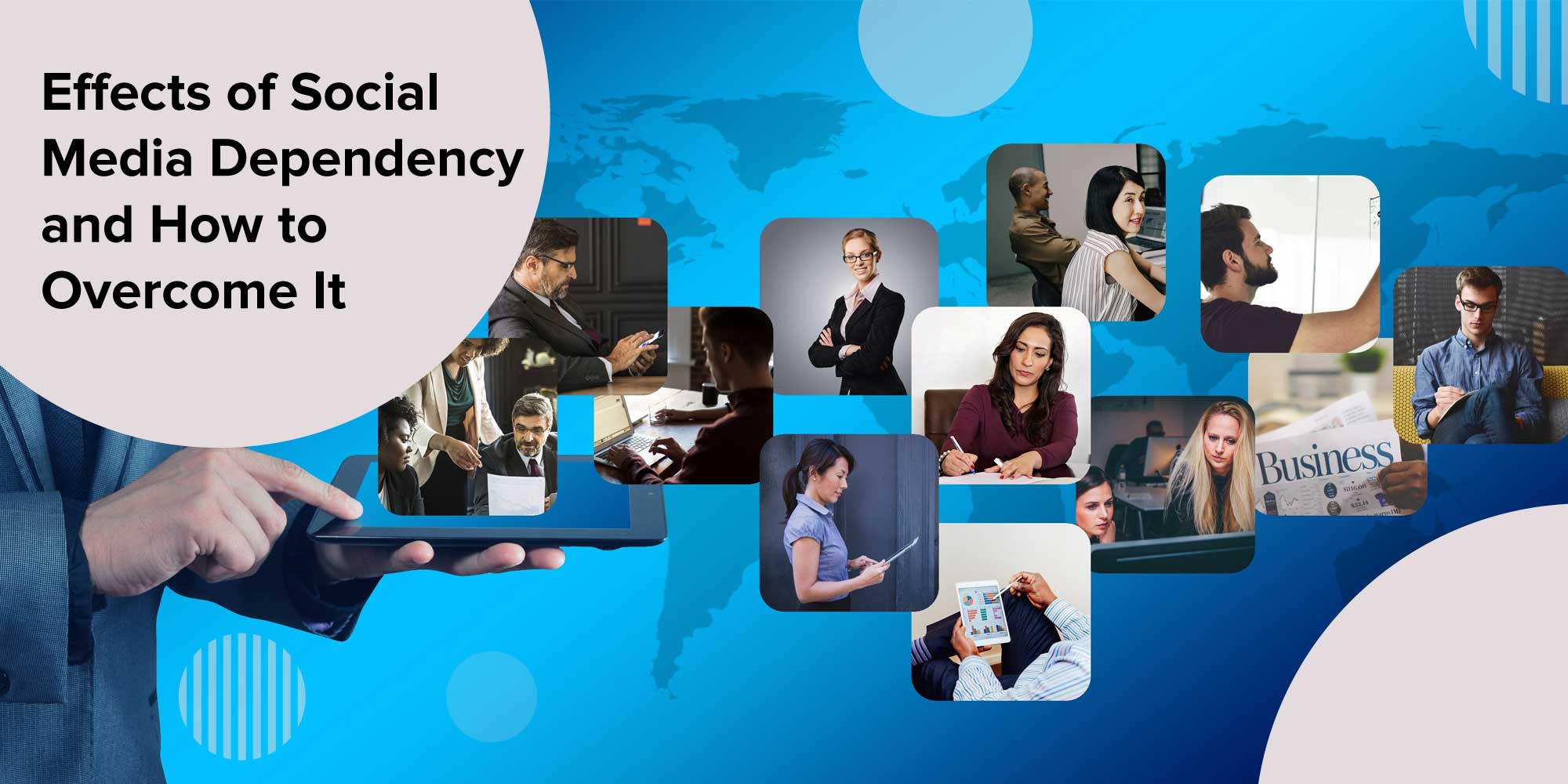Ever since the internet came into existence, the world has evolved into a global village. Everyone can interact with their loved ones in seconds through emails, social media platforms, and other applications. Virtual interactions have replaced old-school, one-on-one, real-time interactions. The need to be physically present to communicate has been long locked up in the back of our minds. All thanks to the great technological innovations in the field of communication.
Social media platforms have become a large part of our lives. Initially, social media was a medium of communication, a free space to express ourselves, a place to make new friends, and even a place to reconnect with old friends. However, now, social media platforms have become the medium for entrepreneurs and businesses to market products, sell products, interact with customers, make money by posting relevant content, etc. It has become a whole new package of social and economic opportunities.
While we all appreciate social media platforms for their beauty and opportunities, have we ever considered a future without social media?
Recently, on October 4th, we did get a small taste of what might happen if social media platforms didn’t work. Facebook, Instagram, WhatsApp, etc. faced a six-hour outage due to some technical errors which even locked the Facebook engineers out of the servers. Keeping the technical details aside, what bothered me was how it may have impacted the users and businesses dependent on these platforms.
For example, my dad is a teacher, and due to the current pandemic situation, he depends on video conferencing applications and social media to teach and communicate with his students. On the night of the outage, he was trying to send out a few notes to his students through WhatsApp, and he was not able to do it. They were important notes the students required urgently. He was tense, and I would go as far as to say he felt crippled in that moment.
It is estimated that Facebook suffered a loss of 6 billion dollars during the outage, and other businesses panicked when they could not access their accounts and connect with their customers. When, economically, it is a huge calling for businesses owners to diversify their business presence on other platforms and mediums, what was the emotional impact?
In many countries, Facebook and its services are the only internet they know, and it’s almost equal to the public utility, which is cheaper and more dependable than a phone call. These services are a great means for many to stay connected with families and friends. It’s an emotional dependency that can be dangerous.
Instagram is a photo-sharing application people use as a medium of sharing their life through photos, reels, and stories. Every time one opens the application, it’s all about the perfect life, perfect fashion, and perfect body type. Instagram demographics consist of the younger age group who are smitten by these unhealthy standards.
Here are some issues of being overly dependent on social media platforms:
- Social Media is very addictive.
- It introduces unhealthy stands on body image, social status, and one’s life overall.
- Blurs the line between reality and viral life.
- Human interactions are limited to digital platforms.
- Real-time human connections take a back seat.
- Displays your life and mental health, which opens you up to bullying, abuse, anxiety, and judgment from people who have no say in your life.
- Great place for attracting danger.
How to Over Come Social Media Dependency
While social media platforms may have a lot of disadvantages, it has its positive impact if used in a moderate and limited manner.
Here are some ways to overcome dependency:
- Use parental controls to limit internet time and limit content while your kids use the internet.
- No kids and teenagers below the age of 15 need social media accounts.
- Adults can limit their screentime by engaging in other hobbies, outside the gadget world.
- Make family gatherings and socializing a real-time thing outside the virtual world. It can be challenging during the pandemic situation, yet you can ensure you limit social media chats in family groups to twice weekly and opt for phone calls instead.
- At home, make one meal compulsory for family members to have together, on the dining table.
- Engage teenagers and younger ones in hands-on hobbies like arts and crafts, outdoor games, gardening, etc.
- Keep your phones away from your bedrooms at night. You don’t need to scroll through stories and reels while you sleep.
- Share your life in a limited and cautious manner on social media platforms. You do not need to give abusers, offenders, and others a chance to hurt you mentally.
- Realize that no one needs to follow unhealthy standards set by others on social media. Your life is perfect the way it is.
- Find other ways to express your thoughts and creativity. For example: music, writing, painting, arts and crafts, major projects, etc. are great ways of expression.
- Business owners who depend on social media for marketing, interacting with the customer base, and much more, remember: You need to diversify your business strategies. Never depend on a single platform.
Social media is both a blessing and a curse. I won’t say one can eradicate the platforms completely from life—that is unreasonable—yet you can control the dependency. Get outside. Stop and smell the roses. After all, there’s nothing more joyful than what mother nature has to offer!




